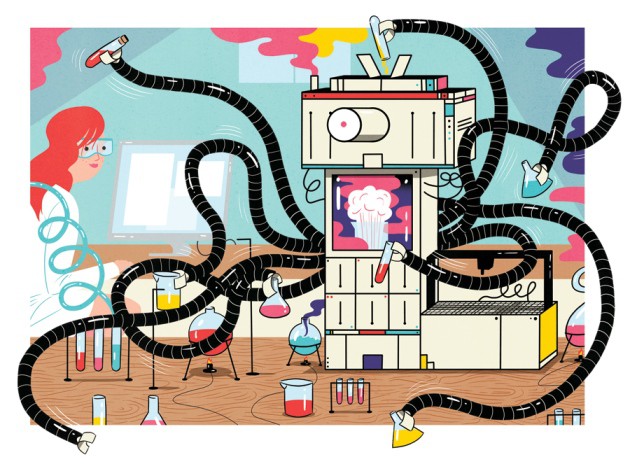Organic chemists typically plan their work on paper, sketching hexagons and carbon chains on page after page as they think through the sequence of reactions they will need to make a given molecule. Then they try to follow that sequence by hand — painstakingly mixing, filtering and distilling, stitching together molecules as if they were embroidering quilts.
But a growing band of chemists is now trying to free the field from its artisanal roots by creating a device with the ability to fabricate any organic molecule automatically. “I would consider it entirely feasible to build a synthesis machine which could make any one of a billion defined small molecules on demand,” declares Richard Whitby, a chemist at the University of Southampton, UK.




